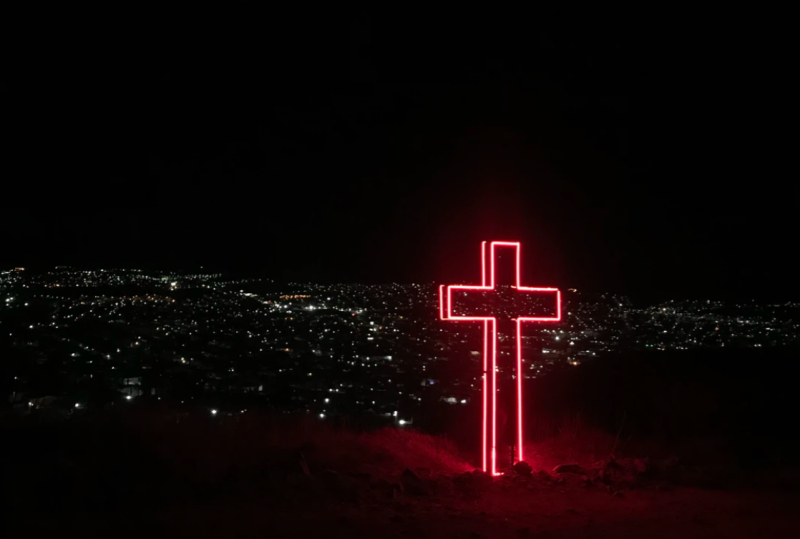
Under President Xi Jinping's communist leadership, religious minorities in China face increased religious repression and persecution. Christians, who account for 100 million church members in China, are systematically being discriminated against, controlled, and subjected to religious persecution by the CCP for "ideological conformity."
According to the National Review, Christians in China are subjected to censorship of Christian teaching, the closure of churches, social marginalization, imprisonment, and even "detention in secret 'black' jails for brainwashing and Maoist 'struggle sessions,' torture, and likely execution by means of organ excision."
Since 2018, President Xi ordered the "sinicization" of the religion, which meant that religious minorities must uphold CCP dictates. Such laws prevented minors from attending churches or any other religion. The law made it difficult to access both physical and online copies of the Bible and even required religious leaders to "actively support CCP practices, leadership, and core values, even in sermons" beginning May 1 this year.
Under the CCP's leadership, Christians in China are also subjected to state surveillance through "strict gatekeeping, verification of identity, and registration." Data on church personnel are tracked using a database, which also records their "rewards" and "punishments." Whoever earns the most "punishments" will be stripped off his "ministry and basic rights."
While the CCP has long demanded for compliance to its communist rule, the pressure is now described as "widespread and intensifying." Instead of treating religious minorities as groups with their own free will and freedom to congregate, they are believed to be "state institutions" which leaders are "civil servants."
Since the sinicization law of 2018, many churches have been shut down for failing to register with the government. The COVID pandemic made it even more difficult to come together as the communist state used social distancing mandates and lockdowns to further persecute Christians in China.
The persecution of Christians in China continue with the demolishing, closure, and control of over 400 Protestant churches in Shangrao City in Jiangxi. Church leaders have also been detained, some never heard of again. On May 21, Good News Mission leaders and 18 priests and seminarians linked to an underground Catholic seminary in the Xinxiang diocese in Hebei were captured. Bishop James Su Zhimin of Baoding, Hebei, was taken in the 1990s and never heard from again.
Forbes reported that in the January 2021 report of Open Doors, China entered the top 20 annual World Watch List of 50 countries where Christians face the worst kind of persecution. The report said, "the policy of 'Sinicizing' the church has been implemented nationwide, as the [CCP] limits whatever it perceives as a threat to its rule and ideology. Thousands of churches have been damaged or closed. In some parts of China, children under the age of 18 aren't allowed to attend church-part of the country's efforts to stunt future growth."
In addition, the United States Commission on International Religious Freedom (USCIRF) claimed that despite the agreement between China's CCP and the Vatican, Chinese authorities "continued to harass, detain, and torture underground Catholic bishops" and "harassed, detained, arrested, and imprisoned members of Protestant house churches" who all refused to support the state's "Three-Self Patriotic Movement." Their defiance led to more intense persecution from Chinese authorities.
But the reason behind the intense persecution of Christians in China may not entirely be power, but fear. Foreign Policy reported that the Christian faith, "however disparate and disunified Christian belief is-inherently threatening to the CCP." The report points out how Chinese leadership is aware of the role Catholic and Protestant faith, both of Western origin, in the fall of the Soviets bloc.
It is estimated that by 2030, there would be 250 million Christians in China. This estimate is most likely what worries the CCP.




















